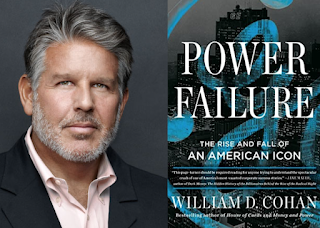Somewhere in the magic formula that makes great art is the internal potential for pain. Someone once said of artists that they were like the rest of us, except that their emotions were just always sitting closer to the surface…. more accessible, more sensitive, and more vulnerable to pain, despair, and even suicide.
The stories of people like Kurt Cobain, Van Gough, Virginia Woolf, Hemingway, Sylvia Plath, and Hunter Thompson, while all different, reinforce the image and reality of the tortured artist.
Add to this list, Anthony Bourdain. A complicated artist in so many ways, he would suffer a similar fate. But we should also remember that while all these stories have the same ending, each artist and their journey tells us more and more about ourselves and about the human condition.
This is the story that Charles Leerhsen tells in Down and Out in Paradise: The Life of Anthony Bourdain:
My Conversation with Charles Leerhsen




